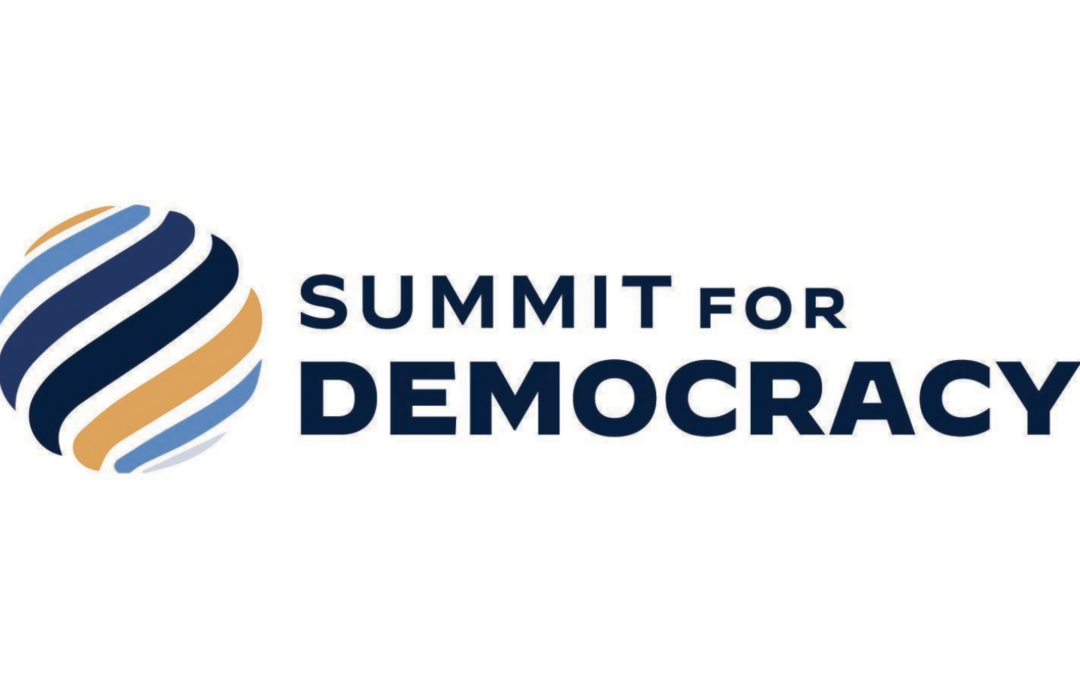What is the Summit for Democracy?
In December 2021, US President Joe Biden hosted a Summit for Democracy focussed on the important themes of defence against authoritarianism, fighting corruption, and respect for human rights. On March 29-30 of this year, the second Summit for Democracy was held, co-hosted by Costa Rica, the Netherlands, the Republic of Korea, the United States and Zambia, and revisiting the themes from the first Summit. Following a virtual welcome to leaders the Summit included in-person meetings with representatives from civil society, government, and the private sector. The plenaries were designed to highlight key issues and challenges facing democracy today and explore solutions to strengthen democratic institutions and values around the world. Opening remarks were given by leaders of all participating nations, as well as the Secretary General of the United Nations.
Why does the Summit matter?
The Summit came at a time when democracy faces significant challenges and threats around the world. Authoritarianism, populism, disinformation, and other factors are eroding democratic values and institutions, making it more important than ever to promote and defend democracy. Given the intensifying struggles in these areas, the Summit turned out to be one of the most important gatherings of democratic leaders and advocates in recent history. It brought together leaders and civil society representatives from around the world to discuss ways to strengthen democratic institutions and values, defend human rights, and promote prosperity for all by addressing these challenges head-on, fostering cooperation and sharing best practices among democratic leaders and advocates. Importantly, the Summit also culminated in the Declaration of the Summit for Democracy, of which Canada is a signatory.
The Declaration of the Summit for Democracy outlines 17 commitments in the effort to protect and strengthen democratic societies. These 17 commitments are in addition to the 35 actions that Canada committed to at the 2021 Summit for Democracy. In the spirit of these engagements, the Government of Canada instituted a mechanism to track progress for each of their commitments, open to the public online. Together with holding the presidency of the Community of Democracies since September 2022, Canada is actively committed to advancing democratic values.
What is Cooperation Canada’s role on issues of civic space and democracy?
Cooperation Canada’s engagement with democracy and civic space starts with its partners and members, both on the domestic and the international scene, with the aim of creating an enabling environment for democratic values to be upheld in Canada and around the world. By playing a liaison role between civil society and the government on important democracy initiatives, Cooperation Canada aims to promote progress and accountability on Canada’s commitments. Indeed, Cooperation Canada:
- Serves as the focal point of Canada’s presidency of the Community of Democracies, as well as the Civil Society Pillar focal point.
- Co-chairs the Civil Society Policy Advisory Group.
- Hosts an annual dialogue with Global Affairs Canada.
- Contributes to global reports around the theme of civic space, such as the Progressing National SDGs Implementation report, and global initiatives such as the Civil Society 7.
- Aims to reinforce partnerships with civil society through participation in partner networks’ important work, such as Forus.
Cooperation Canada advocates for meaningful civil society engagement across government consultations and engagement processes and pushes the government to advance democratic values in an equitable and coherent manner.


